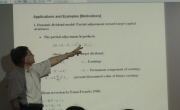We developed an efficient Monte-Carlo algorithm to solve dust-scattering radiative transfer problems for continuum radiation. The method calculates the scattered intensities for various anisotropic factors ($g_i$) all at once, while actual photon pack...
http://chineseinput.net/에서 pinyin(병음)방식으로 중국어를 변환할 수 있습니다.
변환된 중국어를 복사하여 사용하시면 됩니다.
- 中文 을 입력하시려면 zhongwen을 입력하시고 space를누르시면됩니다.
- 北京 을 입력하시려면 beijing을 입력하시고 space를 누르시면 됩니다.
https://www.riss.kr/link?id=A101343191
- 저자
- 발행기관
- 학술지명
- 권호사항
-
발행연도
2010
-
작성언어
Korean
-
주제어
dust ; extinction ; methods ; numerical ; radiative transfer
-
등재정보
KCI등재
-
자료형태
학술저널
- 발행기관 URL
-
수록면
177-186(10쪽)
- DOI식별코드
- 제공처
-
0
상세조회 -
0
다운로드
부가정보
다국어 초록 (Multilingual Abstract)
We developed an efficient Monte-Carlo algorithm to solve dust-scattering radiative transfer problems for continuum radiation. The method calculates the scattered intensities for various anisotropic factors ($g_i$) all at once, while actual photon packets are tracked following a scattering phase function given by a single anisotropic factor ($g_0$). The algorithm was tested by applying the method to a dust cloud embedding a star at the cloud center and found to provide accurate results within the statistical fluctuation that is intrinsic in Monte-Carlo simulations. It was found that adopting $g_0$ = 0.4 - 0.5 in the algorithm is most efficient. The method would be efficient in estimating the anisotropic factor of the interstellar dust by comparing the observed data with radiative transfer models.
동일학술지(권/호) 다른 논문
-
- 한국천문학회
- 우종학
- 2010
- KCI등재
-
- 한국천문학회
- 선광일
- 2010
- KCI등재
-
- 한국천문학회
- 양홍진
- 2010
- KCI등재
-
- 한국천문학회
- 안상현
- 2010
- KCI등재





 ScienceON
ScienceON 코리아스칼라
코리아스칼라






